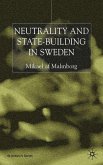Violent politics in Northern Ireland has lasted thirty years and cost four thousand lives and billions of pounds. Many such conflicts afflict the world. This book describes the search for causes and solutions. It identifies the key factors driving violent politics and the range of counter-strategies. It analyzes the course of the troubles in Northern Ireland, and the results of the countermeasures used. The conclusions are disturbing. The recommendations are controversial, but difficult to escape.
Violent Politics is an important addition to the literature on the challenges faced by governments in responding to terrorism and civil unrest. The book is noteworthy for its clarity, trenchant analysis and clear exegesis of both theory and empirical evidence. Addison's first-hand experience as a soldier in Northern Ireland enriches the book immeasurably and provides an invaluable perspective that is too often missing from other academic treatments of this subject.' - Bruce Hoffman, Director of the RAND Washington Office









